De Chileense schrijfster Isabel Allende werd geboren in Lima op 2 augustus 1942. Zie ook mijn blog van 2 augustus 2007.
Uit: Of Law and Shadows
“Rivera remembered the first execution as clearly as if he were seeing it today. It had happened five years ago, a few days after the military takeover. It was still cold, and it had rained all night; the skies had opened and washed the world, leaving the barracks bright and clean and smelling of moss and moisture. By dawn, the rain had stopped, but everything was softened in the haze of its memory, and small pools of water glittered among the cobbles like slivers of glass. The firing squad was assembled at the far end of the patio, and two strides before them, deathly pale, stood Lieutenant Ramirez. The prisoner was brought in between two guards, who were holding him up by the arms because he couldn’t stand on his own two feet.
“Position the prisoner against the wall, Corporal!”
“But, Lieutenant, he can’t stand up.”
“Then sit him down!”
“Where, Lieutenant?”
“Well, bring a chair, goddammit,” and the lieutenant’s voice had cracked.
Faustino Rivera turned to the man at his left, repeated the order, and the man departed. Why don’t they pitch the prisoner on the ground and shoot him like a dog before it gets light and we can see everybody’s face? Why drag it out like this? the corporal thought, uneasy because the patio was getting lighter by the second. The prisoner raised his eyes and looked at each of them with the astounded expression of the dying; he paused when he came to Faustino. He undoubtedly recognized him, because once they’d played soccer on the same field, and there he was now standing in the middle of icy pools of water, holding a rifle in his hands that weighed a ton, while the prisoner lay on the ground waiting. At this point the chair arrived and the lieutenant ordered them to tie the prisoner to the chairback because he was swaying like a scarecrow. The corporal stepped toward him with a kerchief.”
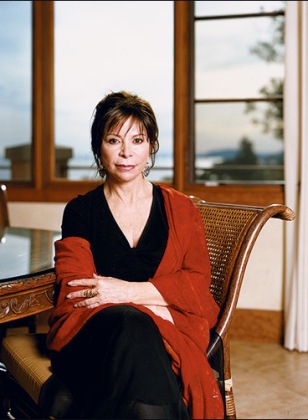
Isabel Allende (Lima, 2 augustus 1942)
De Amerikaanse schrijver James Baldwin werd op 2 augustus 1924 in Harlem, New York, geboren. Zie ook mijn blog van 2 augustus 2006 en ook mijn blog van 2 augustus 2007.
.
Uit: If Beale Street Could Talk
“I look at myself in the mirror. I know that I was christened Clementine, and so it would make sense if people called me Clem, or even, come to think of it, Clementine, since that’s my name: but they don’t. People call me Tish. I guess that makes sense, too. I’m tired, and I’m beginning to think that maybe everything that happens makes sense. Like, if it didn’t make sense, how could it happen? But that’s really a terrible thought. It can only come out of trouble–trouble that doesn’t make sense.
Today, I went to see Fonny. That’s not his name, either, he was christened Alonzo: and it might make sense if people called him Lonnie. But, no, we’ve always called him Fonny. Alonzo Hunt, that’s his name. I’ve known him all my life, and I hope I’ll always know him. But I only call him Alonzo when I have to break down some real heavy shit to him.
Today, I said, “–Alonzo–?”
And he looked at me, that quickening look he has when I call him by his name.
He’s in jail. So where we were, I was sitting on a bench in front of a board, and he was sitting on a bench in front of a board. And we were facing each other through a wall of glass between us. You can’t hear anything through this glass, and so you both have a little telephone. You have to talk through that. I don’t know why people always look down when they talk through a telephone, but they always do. You have to remember to look up at the person you’re talking to.
I always remember now, because he’s in jail and I love his eyes and every time I see him I’m afraid I’ll never see him again. So I pick up the phone as soon as I get there and I just hold it and I keep looking up at him.
So, when I said, “–Alonzo–?” he looked down and then he looked up and he smiled and he held the phone and he waited.
I hope that nobody has ever had to look at anybody they love through glass.
And I didn’t say it the way I meant to say it. I meant to say it in a very offhand way, so he wouldn’t be too upset, so he’d understand that I was saying it without any kind of accusation in my heart.
You see: I know him. He’s very proud, and he worries a lot, and, when I think about it, I know–he doesn’t–that that’s the biggest reason he’s in jail. He worries too much already, I don’t want him to worry about me. In fact, I didn’t want to say what I had to say. But I knew I had to say it. He had to know.
And I thought, too, that when he got over being worried, when he was lying by himself at night, when he was all by himself, in the very deepest part of himself, maybe, when he thought about it, he’d be glad. And that might help him.
I said, “Alonzo, we’re going to have a baby.”
I looked at him. I know I smiled. His face looked as though it were plunging into water. I couldn’t touch him. I wanted so to touch him. I smiled again and my hands got wet on the phone and then for a moment I couldn’t see him at all and I shook my head and my face was wet and I said, “I’m glad. I’m glad. Don’t you worry. I’m glad.”
But he was far away from me now, all by himself. I waited for him to come back. I could see it flash across his face: my baby? I knew that he would think that. I don’t mean that he doubted me: but a man thinks that. And for those few seconds while he was out there by himself, away from me, the baby was the only real thing in the world, more real than the prison, more real than me.
I should have said already: we’re not married. That means more to him than it does to me, but I understand how he feels. We were going to get married, but then he went to jail.
Fonny is twenty-two. I am nineteen.
He asked the ridiculous question: “Are you sure?”
“No. I ain’t sure. I’m just trying to mess with your mind.”
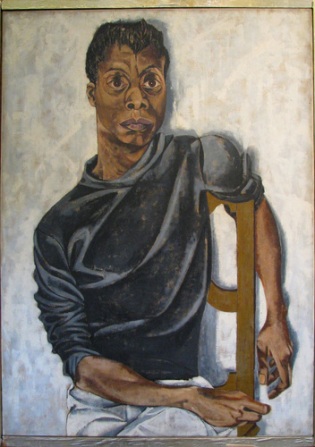
James Baldwin (2 augustus 1924 – 1 december 1987)
Richard Olney, Portrait of James Baldwin, 1954
De Franse dichter en schrijver Philippe Soupault werd geboren op 2 augustus 1897 in Chaville bij Parijs. Zie ook mijn blog van 2 augustus 2007.
Grammaire
Peut-être et toujours peut-être
adverbes que vous m’ennuyez
avec vos presque et presque pas
quand fleurissent les apostrophes
Et vous points et virgules
qui grouillez dans les viviers
où nagent les subjonctifs
je vous empaquette vous ficelle
Soyez maudits paragraphes
pour que les prophéties s’accomplissent
bâtards honteux des grammairiens
et mauvais joueurs de syntaxe
Sucez vos impératifs
et laissez-nous dormir
une bonne fois
c’est la nuit
et la canicule
Sept veaux
c’est peu
sept œufs
c’est beaucoup
Mille huit cent quatre-vingt-douze
c’est sec
Mille huit cent quatre-vingt-dix-sept
c’est trop
Pomme poire et pendulette
c’est émouvant
Rien n’égale la satinette
c’est évident
N’essayez pas de m’arrêter
c’est décidé
la lune l’orage et le poirier
c’est lune.
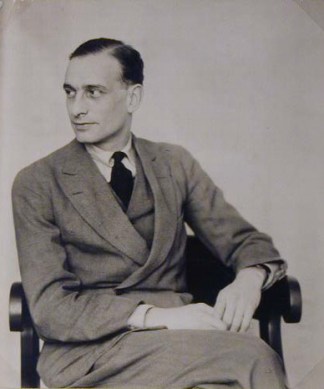
De Hongaarse dichter en schrijver Zoltán Egressy wird geboren in Boedapest op 2 augustus 1967. Hij studeerde Hongaars, literatuur en geschiedenis aan de universiteit van Boedapest en sloot zijn stidie in 1990 af. In 1991 publiceerde hij een dichtbundel, Csókko, (in het Duits „Kusszeit“), vervolgens vertaalde hij werk van Pessoa en Quasimodo. In dezelfde tijd was hij ook zanger in een Underground band en schreef hij voor een theatertijdschrift. Sinds 1995 schrijft Egressy toneelstukken, hoorspelen en draaiboeken. Zijn eerswte stuk, Sóska, sült krumpli, wird opgevoerd het József-Katona-Theater in Boedapest en was een groot succes. Zijn tweede stuk, Portugál, wird door Andor Lukáts verfilmd. Egressy is getrouwd met de Hongaarse actrice Ágnes Bertalan en heeft twee kinderen.
Uit: 4 x 100 (Vertaald door Albert Koncsek)
“(Massageraum. In der Mitte die Massagebank, an den Wänden weitere Bänke. An den Wänden Kalender, Plakate. Ein Plakat informiert über Allergiesymptome (Pollenflug), ein anderes über die Dinosaurierarten, aber es gibt auch einige zur Athletik. Die Tür ist offen. Dali sitzt auf einer Bank an der Wand, packt seine Tasche aus, holt verschiedene Mittelchen hervor, stellt die Plastikflaschen und Salben kommod nebeneinander. Einige nimmt er sich genauer unter die Lupe, nicht ausgeschlossen, dass er sich das Verfallsdatum betrachtet. Er scheint müde und zerstreut zu sein. Von draußen ist Radau zu hören. Dali nervt der Lärm, er geht zur Tür und schließt sie. Er geht zurück an seinen Platz. Er seufzt. Es klopft, kurz darauf öffnet sich die Tür. Tante Judy steht da.)
Tante Judy Du schon?… (Tritt ungezwungen und temperamentvoll ein.) Dein Harem kommt gleich, der Bus ist angekommen, hallo. (Lächelt, gibt ihm einen Wangenkuss.)
Dai: (Leise, bündig)
Oje, oje, wir müssen sterben.
Tante Judy
Ich weiß im Übrigen nicht, warum man sie zusammensperren muss, wenn der Wettkampf eh hier stattfindet, alle sind aus Budapest, sie könnten auch von zu Hause kommen, nicht?
Dali
Wir können uns nicht mehr selbst betrügen. Oje, oje, wir müssen sterben, wir müssen sterben.
Tante Judy
Ich bin heute Vormittag nicht zu ihnen ins Trainigslager gegangen, die haben auch ohne mich genug Sorgen, hast du heute mit Piroschka gesprochen?
Dali
Wir werden sterben, Judy. Wir werden sterben.
Tante Judy
Ich liebe die Welt, Dali, sag mir nicht so was, vor allem nicht heute.
Dali
Es ist auch heute ganz offensichtlich, dass wir sterben müssen.
Tante Judy
Es muss gelingen.
Dali
Es wird gelingen. Jedem irgendwann. Zwischen Herbst und Frühling oder zwischen Frühling und Herbst. Es ist ganz offensichtlich. (Ergreift Tante Judys Hand.) Du hast dort, wo dich niemand sieht, nicht geweint.
Tante Judy (Öffnet sich, versucht, das persönliche Thema zu meiden. Fröhlich.)
Als kleines Mädchen war ich mir sicher, dass man ein Mittel erfinden wird, und dann muss niemand mehr sterben.
Dali
Man hat es aber nicht erfunden, Judy.
Tante Judy
Ja ja.
Dali
Ja ja.
(Pause)
Tante Judy (Klatscht einmal, will vom Thema ablenken.)
Na dann…
Dali
Du hast nicht geweint… Aber ich!… Es gibt keinen Film, bei dem ich nicht weinen muss.
(Tante Judy geht hinaus auf den Flur. Das Klimpern von Geld und das Geräusch eines Kaffeeautomaten sind zu hören. Die Tür ist offen, Tante Judys Rücken ist zu sehen. Sie hört Dali, den es sichtlich nicht kümmert, ob die Trainerin ihm zuhört.)
Es gibt keine Schnulze, bei der ich nicht weine. Gleichzeitig lache ich über mich. Weine aber dabei. Ein Witz. Da setzt im Film die Musik ein, damit der Bauer weint. Und wer weint – ich, ja. Oder bei irgendeiner Hochzeit. Wenn es nicht meine eigene ist. Wenn die sagen, in guten und in schlechten Zeiten, zum Beispiel.
(Tante Judy tritt ein, in der Hand der Kaffee.)
Oder nur eine Melodie. Was weiß ich, nur eine Strophe. Und schon weine ich wie ein Trottel. Rollen die Tränen. Wie aus der Pistole geschossen. (Lacht dreckig.)
Tante Judy (Zeigt auf den Kaffee.)
Ein klein wenig nicht heiß.
Dali
Mit geht’s nicht gut, Judy. (Lacht wieder gezwungen auf.)
Tante Judy
Seit Tagen, Wochen, Monaten, Jahren geht es dir nicht gut.
Dali
Seit dreiundzwanzig Jahren. Seither schwächele ich.
(Pause)
Tante Judy
Dieser Kaffee ist ein klein wenig schlecht. (Trinkt den Rest in einem Zug und wirft den Becher in einen Papierkorb.)
Dali (Ernsthaft nachdenkend)
Was ist heute? Ist Ostern schon vorbei?
Tante Judy
Zwei Monate her. Vor zwei Monaten war Ostern, Dali. Es ist Sommer und alles lebt! Hast du schon mit Piroschka gesprochen?
Dali
Wer liebt, ist wohl kaum schuldig.”
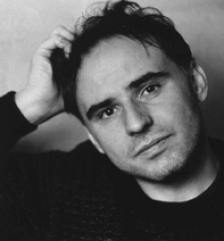
Zoltán Egressy (Boedapest, 2 augustus 1967)
De Amerikaanse schrijver en historicus Caleb Carr werd geboren op 2 augustus 1955 in New York. Zijn jeugd in een achtergestelde buurt van Manhatten werd gekenmerkt door chaotische familieverhoudingen. Zijn vader, een journalist, was alcoholist en veroordeeld wegens doodslag. Hij was wel bevriend met mensen als Jack Kerouac en Allen Ginsberg. Zijn ouders lieten zich al vroeg scheiden. Ook zijn nieuwe stiefvader was alcoholist. Toch rondde Carr zijn studie geschiedenis in New York met succes af. Hij begon zijn loopbaan als journalist. In 1994 volgde zijn doorbraak, internationaal, met een in het Victoriaanse tijdperk spelende detective, The Alienist. De latere president van de VS, Theodore Roosevelt, speelt hierin een rol als leider van een politiecorps. In het in 1997 verschenen vervolg, The Angel of Darknes, kon Carr het hoge stilistische niveau handhaven. Andere boeken van hem, zoals The Italian Secretary en Killing Time waren minder succesvol.
Uit: The Alienist
“The words as I write them make as little sense as did the sight of his coffin descending into a patch of sandy soil near Sagamore Hill, the place he loved more than any other on earth. As I stood there this afternoon, in the cold January wind that blew off Long Island Sound, I thought to myself: Of course it’s a joke. Of course he’ll burst the lid open, blind us all with that ridiculous grin and split our ears with a high-pitched bark of laughter. Then he’ll exclaim that there’s work to do—“action to get!”—and we’ll all be martialed to the task of protecting some obscure species of newt from the ravages of a predatory industrial giant bent on planting a fetid factory on the little amphipian’s breeding ground. I was not alone in such fantasies; everyone at the funeral expected something of the kind, it was plain on their faces. All reports indicate that most of the country and much of the world feel the same way. The notion of Theodore Roosevelt being gone is that—unacceptable. In truth, he’d been fading for longer than anyone wanted to admit, really since his son Quentin was killed in the last days of the Great
Butchery. Cecil Spring-Rice once droned, in his best British blend of affection and needling, that Roosevelt was throughout his life “about six”; and Herm Hagedorn noted that after Quentin was shot out of the sky in the summer of 1918 “the boy in Theodore died.” I dined with Laszlo Kreizler at Delmonico’s tonight, and mentioned Hagedorn’s comment to him. For the remaining two courses of my meal I was treated to a long, typically passionate explanation of why Quentin’s death was more than simply heartbreaking for Theodore: he had felt profound guilt, too, guilt at having so instilled his philosophy of “the strenuous life” in all his children that they often placed themselves deliberately in harm’s way, knowing it would delight their beloved father. Grief was almost unbearable to Theodore, I’d always known that; whenever he had to come to grips with the death of someone close, it seemed he might not survive the struggle. But it wasn’t until tonight, while listening to Kreizler, that I understood the extent to which moral uncertainty was also intolerable to the twenty-sixth president, who sometimes seemed to think himself Justice personified. Kreizler . . . He didn’t want to attend the funeral, though Edith Roosevelt would have liked him to. She has always been truly partial to the man she calls “the enigma,” the brilliant doctor whose studies of the human mind have disturbed so many people so profoundly over the last forty years. Kreizler wrote Edith a note explaining that he did not much like the idea of a world without Theodore, and, being as he’s now sixty-four and has spent his life staring ugly realities full in the face, he thinks he’ll just indulge himself and ignore the fact of his friend’s passing. Edith told me today that reading Kreizler’s note moved her to tears, because she realized that Theodore’s boundless affection and enthusiasm—which revolted so many cynics and was, I’m obliged to say in the interests of journalistic integrity, sometimes difficult even for friends to tolerate—had been strong enough to touch a man whose remove from most of human society seemed to almost everyone else unbridgeable. Some of the boys from the Times wanted me to come to a memorial dinner tonight, but a quiet evening with Kreizler seemed much the more appropriate thing. It wasn’t out of nostalgia for any shared boyhood in New York that we raised our glasses, because Laszlo and Theodore didn’t actually meet until Harvard. No, Kreizler and I were fixing our hearts on the spring of 1896—nearly a quarter-century ago!—and on a series of events that still seems too bizarre to have occurred even in this city. By the end of our dessert and Madeira (and how poignant to have a memorial meal in Delmonico’s, good old Del’s, now on its way out like the rest of us, but in those days the bustling scene of some of our most important encounters), the two of us were laughing and shaking our heads, amazed to this day that we were able to get through the ordeal with our skins; and still saddened, as I could see in Kreizler’s face and feel in my own chest, by the thought of those who didn’t. There’s no simple way to describe it.”
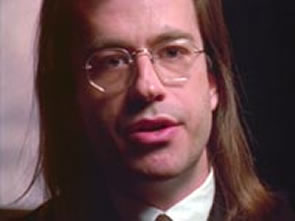
Caleb Carr (New York, 2 augustus 1955)
De Duitse dichter, schrijver, kunst- en literatuurcriticus Adolf Friedrich von Schack werd geboren op 2 augustus 1815 in Brüsewitz bij Schwerin. Zie ook mijn blog van 2 augustus 2007.
Der Brief
Nichts ist mir von dir geblieben
Als der Brief, den du geschrieben,
Meines Lebens höchstes Gut;
Mag das Auge mir erblinden,
Tröstung kann ich einzig finden,
Wenn es auf dem Blatte ruht.
Dann erstehn mir sel’ge Stunden
Mit den Wonnen, die geschwunden,
Wieder aus der Totengruft;
Und um meine wehmuttrunkne
Seele hauchen lang versunkne
Lenze ihren Blütenduft.
Ueber mir im Abendwinde
Rauscht das Wipfellaub der Linde
So wie ehmals wiederum,
Als wir Arm in Arm gelegen
Und nur mit des Herzens Schlägen
Zwiesprach hielten, wonnestumm.
Und dann ist mir, auf dem Blatte
Ruhe neben mir dein Schatte
In dem blassen Dämmerlicht;
O, an ihm im langen, langen
Kusse soll mein Mund noch hangen,
Wenn im Tod mein Auge bricht.
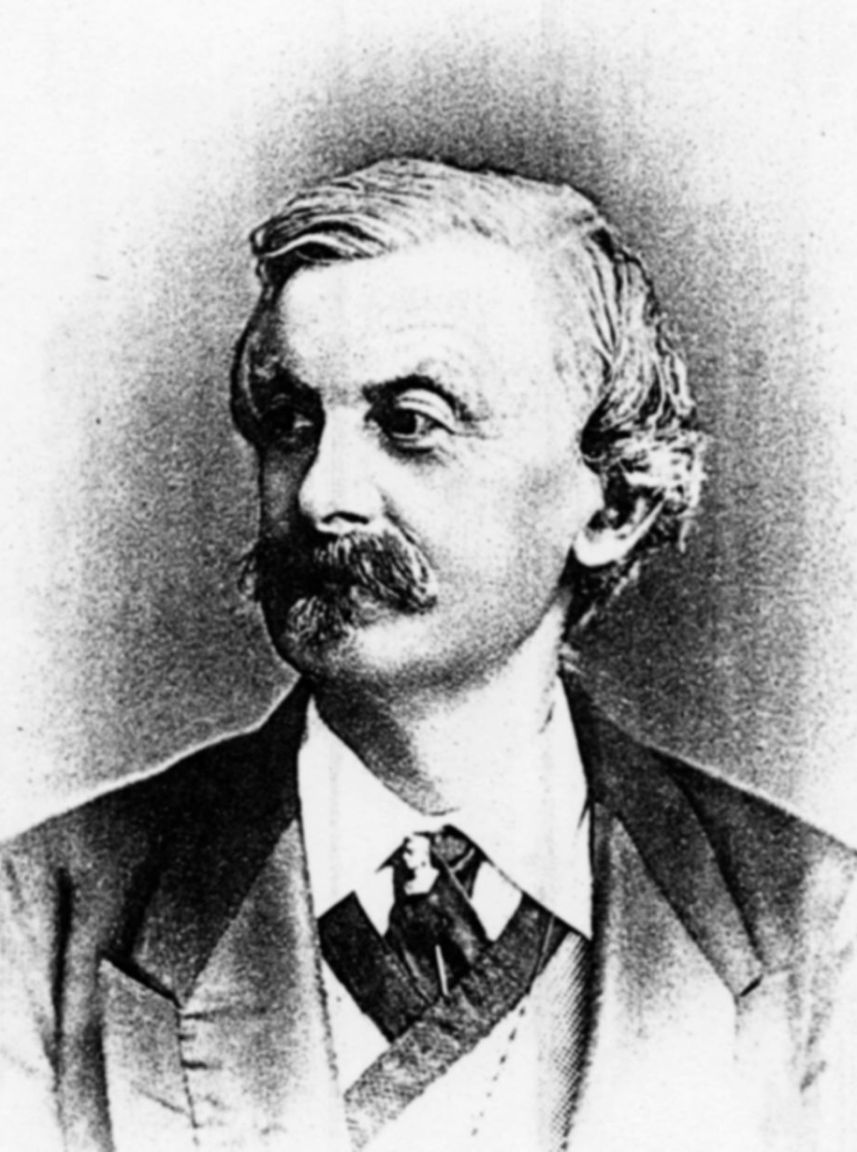
Adolf Friedrich von Schack (2 augustus 1815 – 14 april 1894)
Zie voor onderstaande schrijvers ook mijn blog van 2 augustus 2007.
De Frans-Canadese dichter, schrijver, acteur, zanger en politiek activist Félix Leclerc werd geboren op 2 augustus 1914 in La Tuque, Quebec, Canada.
De Zwitserse schrijver Arnold Kübler werd geboren op 2 augustus 1890 in Wiesendrangen.
